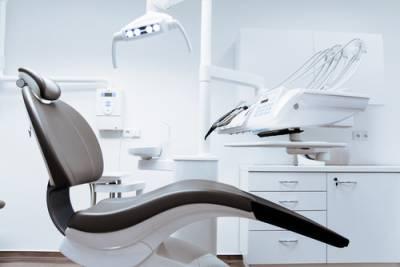
 Medical malpractice claims are often considered in terms of general practice and hospital care. While cases stemming from general healthcare errors are very common, those born of an error by a dentist or oral surgeon are also common. Dentists and other dental practitioners are held to a professional standard of care similar to healthcare professionals because careless mistakes by the medical professional tasked with caring for a patient’s teeth and mouth can cause significant harm to the patient.
Medical malpractice claims are often considered in terms of general practice and hospital care. While cases stemming from general healthcare errors are very common, those born of an error by a dentist or oral surgeon are also common. Dentists and other dental practitioners are held to a professional standard of care similar to healthcare professionals because careless mistakes by the medical professional tasked with caring for a patient’s teeth and mouth can cause significant harm to the patient.
Patients who have experienced medical malpractice at the hands of a dentist may suffer lasting harm, such as missing or badly damaged teeth, permanent numbness due to nerve damage, or anesthesia errors that can be severe or fatal. If you suspect that you have been harmed by medical malpractice in a dental setting, it would be advisable to contact an attorney as soon as your suspicions have been aroused. Strict statutes of limitation apply to malpractice cases of all varieties, so time is of the essence when preparing for potential malpractice litigation.
Dental malpractice can have severe consequences for the patient affected by a provider’s professional negligence. Common forms of dental malpractice include:
Anesthesia errors - The use of sedatives and other anesthetics is ubiquitous in the world of dental care. A large percentage of the population harbors some level of anxiety associated with dental procedures, making the use of anesthesia appealing for patient and provider alike. However, there are risks associated with anesthesia, which can be mitigated when the provider uses a level of care appropriate for their profession. When anesthesia errors occur, the harm caused can be severe. Brain damage is a common result.
Infection control - Procedures should be performed in a sanitary environment using well-sterilized tools. Severe infections can result if a procedure is performed in unsanitary conditions.
Unnecessary procedures - There are some dentists and oral surgeons who will order a procedure that is not necessary or recommended in the patient’s circumstances. These needless procedures may cause harm without any tangible benefit.
Errant extractions - A tooth extraction is likely permanent; once it has been lost and a certain amount of time has elapsed, it is unlikely that the original tooth can be successfully reimplanted. An artificial implant or dentures may be the only option for mitigating the harm of an errant extraction.
Damage to teeth - Dentists may on occasion cause accidental harm to a patient’s other teeth, such as by breaking one tooth while working on another.
If you suspect that you have been harmed by dental malpractice, you may be entitled to compensation.
Kinnally Flaherty Krentz Loran Hodge & Masur P.C. is committed to holding negligent dental providers accountable through medical malpractice litigation. Our skilled Aurora medical malpractice lawyers will strive to secure the highest possible settlement or award on your behalf. Call 630-907-0909 for a free consultation.
Source:
https://www.berxi.com/resources/articles/dental-malpractice-stats/